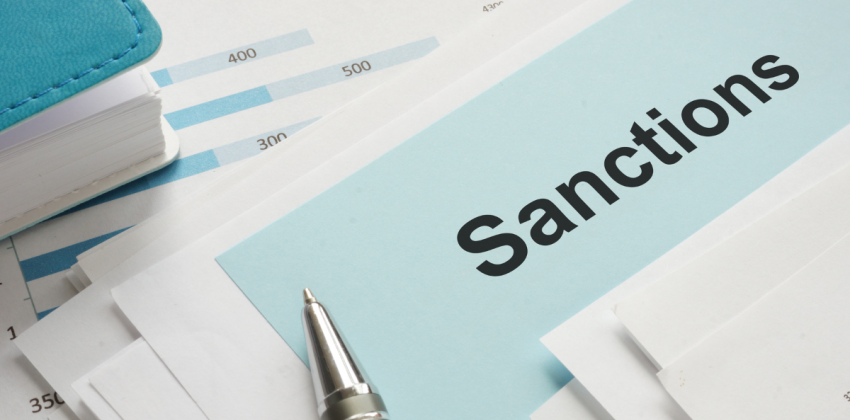Sanction Lists are official lists published by governmental authorities or international organizations that identify specific individuals, entities, and countries with which it is prohibited (or strictly limited) to maintain financial and commercial relationships.
Constant and real-time monitoring of these lists is essential and extends well beyond the financial sector: continuous verification is necessary not only to comply with legal obligations, but also – and above all – to prevent one’s company from being involved in crimes related to money laundering (AML) and the financing of terrorism (CFT).
Sanction Lists: what they are and what they are for
Sanction Lists are official lists that include the names of individuals, countries, groups, or companies subject to economic or legal sanctions and restrictions.
These lists are drawn up and updated by international bodies such as the United Nations, supranational entities such as the European Union, and national governments. In the United Kingdom, for example, this task is managed by the OFSI (Office of Financial Sanctions Implementation), while in the United States, the lists of sanctioned subjects are maintained by the OFAC (Office of Foreign Assets Control), a federal agency under the U.S. Department of the Treasury.
Their purpose is twofold: on one hand, they aim to ensure international security by preventing the financing of terrorism and other illicit activities; on the other, they serve as a powerful tool to exert political pressure on specific countries, organizations, or individuals.
Sanction Lists: which ones to check?
Being listed on a Sanction List implies the immediate freezing of assets and a ban on executing transactions. Therefore, financial institutions and companies operating internationally must be aware of the status of their clients, suppliers, and partners of any kind.
The sanctions that must be constantly monitored, in particular, are those issued and updated by:
- United Nations: UN sanctions are adopted by the Security Council and are considered binding for all member states. They target, among others, terrorist organizations such as Al-Qaeda and Da’esh;
- European Union: in addition to those issued by the UN, the EU also applies autonomous sanction regimes — for example, the recent economic sanctions against Russia;
- OFAC: although U.S.-based, OFAC’s sanction lists are not limited to the United States. On the contrary, they are among the most complex and far-reaching sanction programs globally. OFAC sanctions can apply, even secondarily, to any type of subject — from terrorist organizations to shipping companies and UN officials.
In this sense, OFAC’s Sanction Lists are among the most challenging to predict, as they are the ones updated most frequently — especially the Specially Designated Nationals and Blocked Persons List (SDN List).
Sanction Lists screening: obligations and regulations
Sanction List screening is a fundamental pillar of the global regulatory framework governing the fight against money laundering and terrorist financing.
In particular, the screening of sanction lists is required by:
- KYC – Know Your Customer: the mandatory procedure of customer identification and due diligence that financial institutions, banks, and other obliged entities must perform to verify the identity of their clients;
- AML – Anti-Money Laundering: a set of laws and regulations aimed at preventing or stopping the flow of money derived from illegal activities into the legal financial system, including the obligation to report suspicious transactions;
- CFT – Combating the Financing of Terrorism: closely linked to Sanction List screening, CFT regulations require the immediate freezing of funds belonging to sanctioned entities and the subsequent notification to authorities.
Sanction List checks do not concern only banks and financial institutions but also all operators who, by the nature of their activities, could be used as channels for transferring funds or laundering money, even on a small scale.
How to perform Sanction List screening?
Sanction Lists are not only an essential operational tool for obliged entities. Ensuring that clients, suppliers, and business partners are not included in these lists is a crucial operation for all companies, especially those operating across national borders.
Continuous monitoring of the lists allows companies to avoid violations of sanction regulations and to prevent involvement in money laundering and terrorism financing offenses.
Sanctions screening also helps identify high-risk clients or partners, protecting the company’s image and reputation.
As we have seen, the lists to be checked are managed by various bodies, each with its own procedures, and in some cases are updated daily. Therefore, especially when hundreds of counterparties must be checked every day, manual screening becomes unfeasible and highly prone to error.
The importance of this process also requires reliable technology, high-quality data, and services that can adapt to different regulatory frameworks. For this reason, for effective, secure, and continuous Sanction List screening, it is advisable to rely on specialized services such as the one offered by Openapi, which allows real-time checks — via API — of sanction measures and lists issued by national and supranational authorities and entities.




















